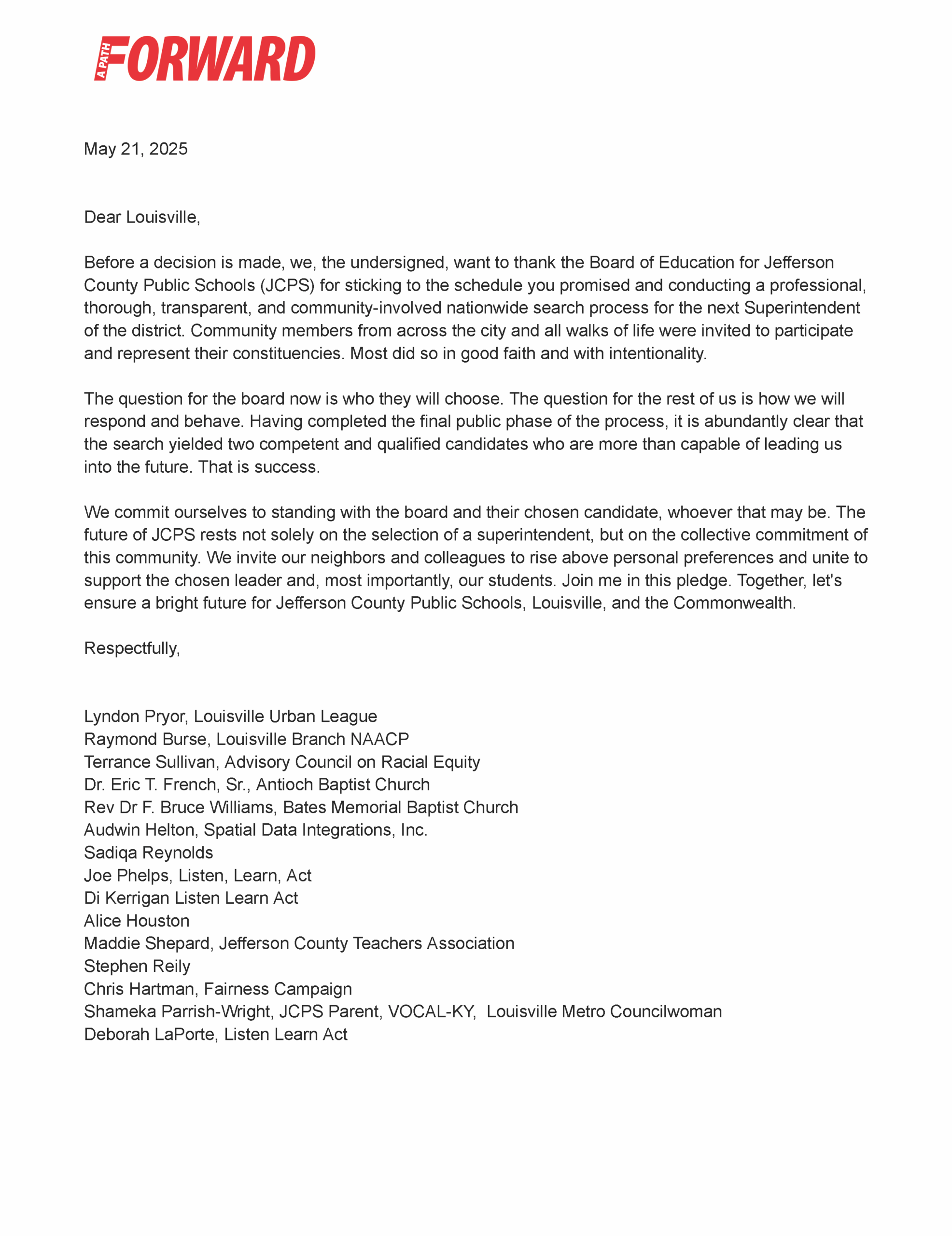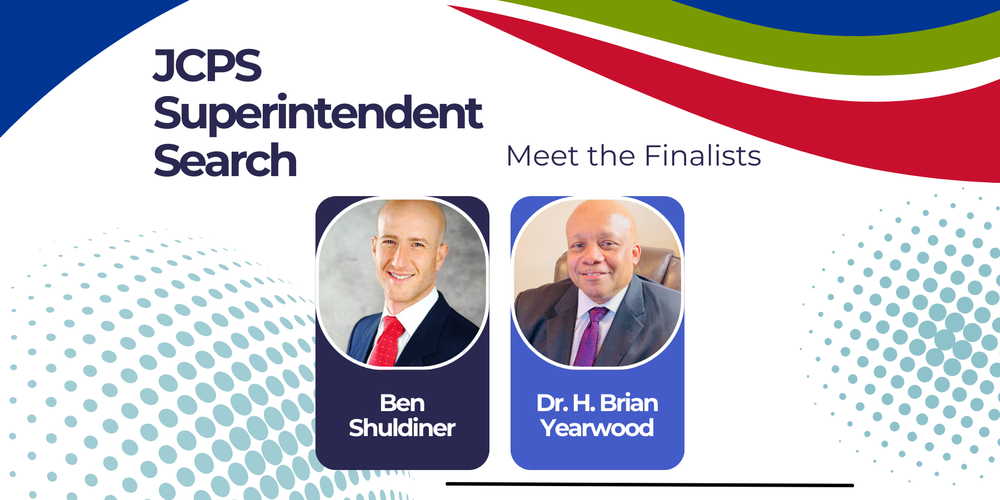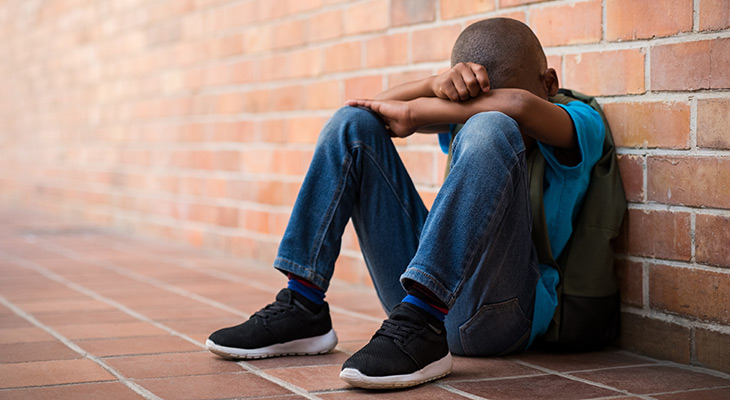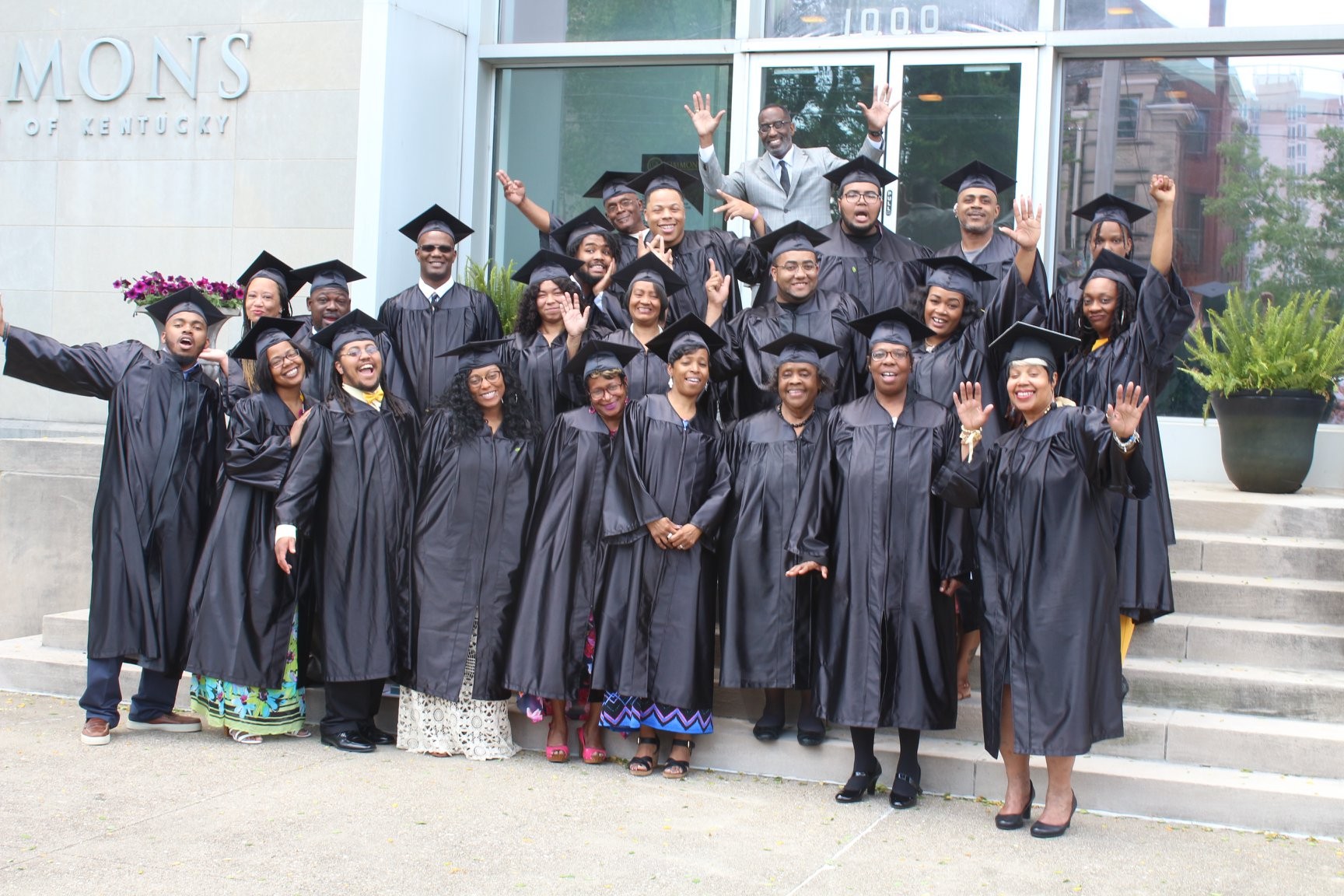JCPS TEACHER TRAINING
In various conversations with the League during Non-Traditional Instruction (NTI), JCPS teachers and community partners providing supplemental and co-curricular instruction indicated more comprehensive training would be beneficial to ensure that teachers are:
- Fully aware of how to use and maximize technology resources to reach and serve every child
- Trauma-informed and ready to engage students in a post-COVID and potentially racially charged environment
- Educated on the value of building authentic relationships with students and families, and how to build those relationships
Who needs to act? You; Dr. Marty Pollio; JCPS Board of Education; JCPS Administrators
JCPS Response
On July 10, 2020, JCPS Superintendent, Dr. Martin Polio, sent a written response to the Path document. Tech Equity was specifically addressed in the statement below. You may read the full response here.
While JCPS continues to build a pipeline for more educators, we are looking to maximize training opportunities in trauma-informed care, coping strategies, and building resilience. Our students have faced a global pandemic as well as a community shift as protests for racial justice continue. Teachers must be equipped to handle the new environment in which our students are living. Like most districts nationally, we know our discipline data shows disproportion between white and African-American students. We must take bold steps in upcoming years to increase teacher training and student supports to eliminate these gaps.
Our district offers educators more than 200 hours of professional development (PD) and culturally responsive institutes. During the 2018-19 school year, more than 9,500 employees participated in culturally responsive PD opportunities. Training on implicit bias will soon be available for our teachers and principals and will be required for every certified staff member. Other PD supports available to address trauma and the mental health needs of our students include the following:
- School counselors, mental health practitioners, and Family Resource Center (FRC) coordinators will receive training on racial trauma and cultural barriers to accessing mental health services to better support students.
- The district crisis counseling team will work directly with students and staff who have experienced trauma.
- Ongoing training will build social-emotional learning skills related to social awareness, selfawareness, empathy, building relationships, coping strategies, building resiliency, traumainformed care practices, bullying prevention, mindfulness, calming strategies, and positive decision making.
- A comprehensive district mental health model has been created and implemented this year to expand support to students.
- Mental health practitioners will lead training with staff each school year on trauma-informed care, and school counselors will lead training with staff each year on suicide prevention and self-care.
We must partner with our postsecondary partners to ensure that teacher certification programs prepare our future teachers to meet the needs of our students. Pre-service teacher candidates must be trained to meet both the academic and social-emotional needs of our students.






